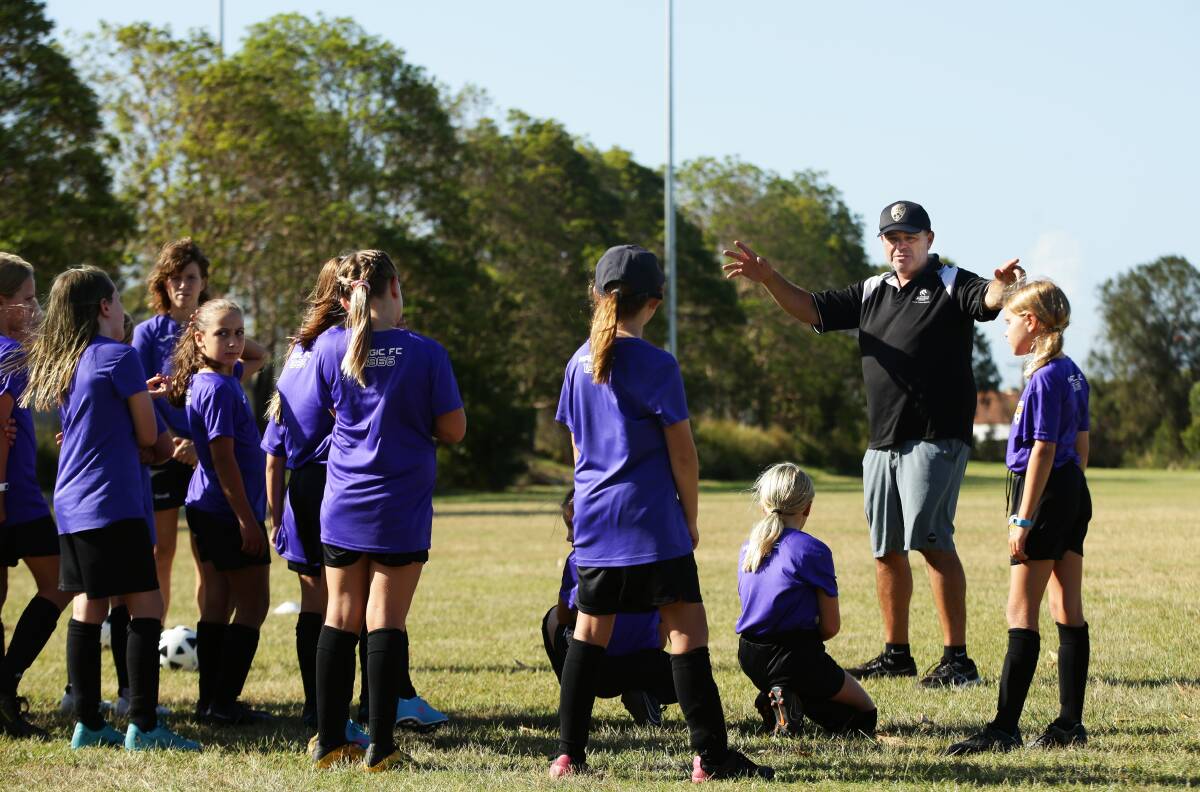
Coaching kids aged nine to 12 in a "positive learning environment" leads to better outcomes, researcher Bradley Jones says.
Mr Jones conducted a 14-week randomised control trial with four Newcastle football clubs, 20 coaches and 200 junior footballers.
He used his "MASTER" coach education program in the trial, which uses positive methods to teach the youngsters. The results showed the coaches were more confident and competent to coach.
The players were happier, more active, engaged and motivated to play.
They had better decision making in games, and their enjoyment of the game increased.
"If the kids are happy and want to play, the likelihood of them staying in the sport is much higher," he said.
Mr Jones, who is Broadmeadow Magic's youth girls technical director, researched positive coaching for four years for a PhD through University of Newcastle. The Hunter Medical Research Institute funded the trial.
The MASTER program produced similar positive results in netball in research led by Associate Professor Narelle Eather.
Mr Jones said the tool can be applied across sports. There are further plans to study the tool's effectiveness in basketball, rugby union and gymnastics.
The coaching tool aims to foster "thinking players", encouraging coaches to provide players with opportunities to "explore, create, attempt, re-attempt" and work with teammates and the coach to solve game problems.
It helps coaches plan and enact training sessions that "create positive enjoyable learning environments for the players".
"It's not about coaching qualifications," he said, which can be costly.
"It's about designing a fun session that still achieves the learning outcomes the coach wants to improve the football. But it's about doing it in a way that the players are happy to come back and do it all again."
The tool involves building on the players' strengths, rather than focusing on negatives.
"We looked at what the kids did really well and challenged them to build on their strengths," he said.
The method stands in contrast to the common practice of coaches being "negative". This can include yelling and berating players over mistakes, often in an angry way, and barking orders at them.
"It is quite common. You could walk along any sporting field and you will hear negative coaching," he said.
"A lot of the time it's well meaning coaches and that's the environment they know.
"And coaches learn their coaching behaviour predominantly by how they were coached."
He said some coaches he worked with "didn't even realise they were speaking from a negative position".
Mr Jones' work builds on previous research that showed this kind of coaching creates a "negative sporting experience for young players".
Such coaches often "overemphasise winning and focus on player weaknesses".
However, developing a positive coaching environment in which coaches promote creativity, intelligence and team harmony is "crucial to ensuring a positive sporting experience".
Coaches create a positive environment through supporting player's needs and wants, including their thoughts on the game, and giving "positive feedback and encouragement".
Studies show that players who train and play in a positive sporting environment learn and succeed more and "develop a lifelong appreciation of sport".
Mr Jones' methods prefers a game-based approach to training, as opposed to individual skill drills.
"So when the kids achieve something, they know when they can apply it in the game."
More play at training and less talk from coaches is part of his method.
"It's about creating a practical tool that coaches can have in their pocket to create a positive learning environment for the kids."
He chose to study the topic, having seen how traditional coaching methods affected his two daughters.
"I'm sure everybody has an experience where the coach, in the heat of the moment, has gone too far with the negative.
"The research says one in three players walk away from their sport because they have a negative experience with their coach."
He said there were many examples of kids "coming home really upset" due to this kind of coaching.
"I thought there had to be a better way," he said.
To see more stories and read today's paper download the Newcastle Herald news app here.







